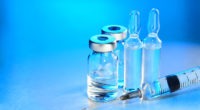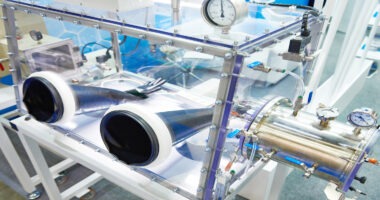CDMOs/CMOs: The Movers and Shakers of 2020
What were the key moves made by CDMOs/CMOs in 2020? Expansion activity was robust in biologic drug-substance and drug-product manufacturing, in part due to COVID-19-related projects, but other manufacturing segments had activity too. DCAT Value Chain Insights highlights the large expansions and M&A.
Key announced expansions and deals from 2020
There were several noteworthy developments by CDMO/CMOs in 2020 that included large-scale expansions, including new facilities, as well as mergers and acquisitions. Some highights, as announced in 2020, are outlined below.
Samsung Biologics $1.7-billion investment for a new biomanufacturing plant and bio complex. In August (August 2020), Samsung Biologics, a biologics CDMO/CMO, announced an investment of KWR 2-trillion ($1.7-billion) for a new biomanufacturing plant, the company’s fourth, in Incheon, South Korea and for a second bio complex. The company broke ground on the new facility last month (November 2020), which, upon completion, will provide 256,000 liters in total biomanufacturing capacity. The plant will have a modular design that will allow flexibility for certain parts of the plant to begin manufacturing activities by the end of 2022, with the goal to commence full operations in 2023. The company also began negotiations earlier this year with the authorities of the Incheon Free Economic Zone to purchase additional land for a second bio complex to house a global R&D facility and allow for future biomanufacturing plants.
Fujifilm Diosynth Biotechnologies’ $1-billion plus in investments in biomanufacturing. Fujifilm Diosynth Biotechnologies is another biologics CDMO/CMO making large investments. In June (June 2020), the company announced that it is investing approximately 100 billion Yen ($928 million) at its site in Hillerød, Denmark, near Copenhagen, to double drug-substance manufacturing capacity, expand its capabilities to include fill–finish, and enhance its current assembly, labeling and packaging services. Fujifilm Diosynth acquired the facility from Biogen in 2019 for approximately $890 million.
The investment will expand production lines for bulk drug substances with the addition of six mammalian-cell bioreactors, which would bring the total to 12 x 20,000-liter bioreactors by the fall of 2023. The expansion will also include the addition of the Denmark site’s first fill–finish production line (to be added by the summer of 2023) capable of producing 35 million units per annum for large-scale production. In the spring of 2022, a new packaging line, equipped with facilities to assemble multiple types of auto-injectors as well as automatic labeling, will be added.
Additional investments announced or started by Fujifilm Diosynth in 2020 include: (1) starting construction of a new $55-million, 60,000-square-foot Advanced Therapies Innovation Center in College Station, Texas, expected to be operational by the fall 2021; (2) a $35-million expansion at its College Station, Texas site to add cell culture and high throughput manufacturing suites to support the production of gene-therapy products, with the expansion slated to be completed in 2020; (3) an investment of JPY 9 billion ($83 million) to triple microbial production capacity at its site in Billingham, UK, with the expansion scheduled to be operational after 2022; (4) the start of construction in February (February 2020) of a new 31,778-square-foot addition at its site in North Carolina to increase its cell-culture manufacturing capacity at the site by approximately 25% and microbial capacity by approximately 50%, with the expansion slated to be completed by mid-2021; and (5) a doubling of its existing process characterization capacity, announced this month (December 2020), at its site in the UK, which is expected to be completed by the late fall in 2021.
Recipharm’s £505 million ($629 million) acquisition of Consort Medical. Earlier this year (2020), Recipharm completed its £505 million ($629 million) acquisition of Consort Medical, a CDMO of active pharmaceutical ingredients (APIs), drug products, and drug devices. Consort Medical was the parent company of Bespak, a CDMO of drug devices, which includes auto-injectors, and Aesica, a CDMO of APIs and drug products, including fill–finish services.
Catalent’s $315-million acquisition of MaSTherCell. Catalent made several investments in 2020 to expand its capabilities in cell and gene therapies. Chief among them was the completion of its $315-million acquisition of MaSTherCell Global, a CDMO of cell and gene therapies, based in Gosselies, Belgium and Houston, Texas. Through the acquisition, Catalent gained a 25,000-square-foot facility in Gosselies, Belgium that provides clinical development and manufacturing services for cell and gene therapies. Construction is in progress for a dedicated 60,000-square-foot adjacent commercial-scale production and fill–finish facility, which is scheduled to open in the fall of 2021. As part of the overall transaction, Catalent also acquired a 32,000-square-foot US facility in Houston, Texas, which, upon completion of validation activities, will focus on development-scale projects. In addition, a commercial manufacturing site, which will mirror the facility in Belgium, is in the preliminary planning stages with sites in Texas being identified.
In addition, in September (September 2020), Catalent announced that it is investing $130 million to add five additional Phase III through commercial-scale manufacturing suites to its gene-therapy campus in Harmans, Maryland. The campus is one of Catalent’s five gene-therapy locations in Maryland. The facilities were gained as part of Catalent’s $1.2-billion acquisition in 2019 of Paragon Bioservices, a contract provider of viral vector development and manufacturing services for gene therapies.
Thermo Fisher Scientific’s investments in biologics and sterile manufacturing. Earlier this month (December 2020), Thermo Fisher Scientific announced it will further expand its footprint in North America and Europe for sterile drug-product development and commercial manufacturing. The company is currently expanding the following sites: Greenville, North Carolina; Swindon, UK; and Ferentino and Monza, Italy. These investments will add 15 development and commercial production lines as well as support a range of services, including live virus, aseptic liquid, and lyophilized vial filling. These projects are expected to be completed over the next two years (as reported on December 9, 2020). In addition to expansions in North America and Europe, the company recently announced projects in Asia-Pacific, including a new sterile manufacturing facility in Singapore and a new integrated biologics and sterile drug development and manufacturing site in Hangzhou, China.
Earlier this year, (September 2020), Thermo Fisher Scientific opened a new Bioprocessing Collaboration Center in St. Louis, Missouri, where multiple Thermo Fisher businesses will jointly develop bioprocessing products, workflows, and services. The center is adjacent to the company’s biologics manufacturing facility, which had earlier doubled production capacity with a $50-million expansion. In addition, the company announced in March (March 2020) plans to open a new cell-therapy development and manufacturing collaboration center in Princeton, New Jersey to combine pharma services and biosciences expertise from across the broader Thermo Fisher network. A new cell-therapy facility is coming on line at the same location. Following its $1.7-billion acquisition of Brammer Bio, a cell- and gene-therapy CDMO in 2019, Thermo Fisher also expanded its viral vector development and manufacturing capabilities by opening a new site in Lexington, Massachusetts and expanding sites in Cambridge, Massachusetts and Alachua, Florida.
Lonza’s investments in biomanufacturing. In August August 2020), Lonza announced an expansion to the company’s microbial manufacturing facility in Visp, Switzerland to provide mid-scale commercial manufacturing to multiple customers. The new facility, which is under construction, will be the sixth to be housed in Lonza’s new biopark in Visp, Switzerland and complements existing small-scale (1,000 L) and large-scale (15,000 L) assets in Visp. The facility is expected to be operational in the second half of 2022.
Lonza is also proceeding with a new biomanufacturing facility in China. The company provided an update earlier this year (2020) of the new 17,000-square-meter mammalian biologics development and manufacturing facility in Sino-Singapore Guangzhou Knowledge City, an industrial park in Guangzhou, China. The facility is the product of a three-way agreement between Lonza, GE Healthcare (now Cytiva following the completion of the $21.4-billion acquisition by Danaher of GE Healthcare Life Sciences in March 2020), and the Guangzhou Development District (GDD), which was signed in 2018, and under which Cytiva and the GDD built and Lonza bought and will operate the facility. As reported earlier this year (April 2020), Lonza expects to begin laboratory and manufacturing operations for new CDMO projects in 2021.
AGC Biologics’ $194-million biomanufacturing expansion. Late last month (November 2020), AGC Biologics, a contract biologics manufacturer, announced it will invest approximately EUR 160 million ($194 million) to expand the production capacity of its Copenhagen, Denmark facility to more than double AGC Biologics’ single-use bioreactor mammalian cell-culture capacity at the site. The expansion is slated to begin operations is 2023.
Earlier this year (2020), AGC Biologics reported that it had purchased a commercial manufacturing facility, formerly owned by AstraZeneca, in Boulder, Colorado to provide it with additional and larger-scale biopharmaceutical production capacity. The facility is expected to begin full-scale operations and manufacturing by April 2021. AGC Biologics is completing further facility expansion projects in 2020 and early 2021 at its facilities in: Seattle; Copenhagen; and Chiba, Japan. In addition, AGC Biologics reported in July (July 2020) an investment of EUR 1 million ($1.1 million) to expand its pDNA Center of Excellence in Heidelberg, Germany for process development and manufacturing of plasmid DNA.
Piramal Pharma Solutions’ expansions for APIs and drug products. Piramal Pharma Solutions (PPS), a CDMO of active pharmaceutical ingredients (APIs) and drug products, announced several investments in 2020. The company is investing approximately $32 million to expand API development and manufacturing at its facility in Riverview, Michigan. The expansion is planned to be ready beginning in the summer of 2022.
In addition, earlier this year (January 2020), PPS announced an investment of CAD$25 million ($19 million) to expand its facility in Aurora, Ontario, Canada with the addition of a 10,500-square-foot manufacturing space in a new wing for API manufacturing overall and including high-potency API manufacturing. The expansion is expected to be completed and running by April 2021. In June 2019, PPS opened a new $10-million high-potency active pharmaceutical ingredient (HPAPI) unit at its site in Riverview, Michigan.
On the drug-product side, earlier this year, PPS acquired a drug-product manufacturing facility in Sellersville, Pennsylvania from G&W Laboratories, a South Plainfield, New Jersey-based pharmaceutical company. The site features manufacturing and packaging technologies for solid oral dosage forms, liquids, creams, and ointments, quality control and microbiology labs, preformulation and analytical development infrastructure, a pilot lab for research and development, and a temperature-controlled warehouse.
Seqens’ investments in API development and manufacturing. Seqens announced several investments in API manufacturing and development in 2020. Last month (November 2020), Seqens reported that it is investing EUR 65 million ($77 million) to increase capacity and implement new technologies at five sites in France: its R&D center and four production sites for APIs and intermediates. The investment in the facilities will support the supply of drug substances for essential medicines in France as part of a plan by the French government to fortify its supply chains in response to the COVID-19 pandemic.
Also, in September (September 2020), Seqens inaugurated an HPAPI manufacturing unit at its site in Villeneuve-La-Garenne, France with an investment of EUR 30 million ($35 million). In addition, earlier this year (2020), Seqens reported that it was adding additional capabilities in flow chemistry.
Carbogen Amcis’ $110-million investment for new API and drug-product facilities. Carbogen Amcis, a Bubendorf, Switzerland-based CDMO of APIs and drug products, announced in August (2020) an investment of CHF 100 million ($110 million) for two new manufacturing facilities in Switzerland and France: a new API manufacturing facility in Hunzenschwil, Switzerland and a new facility in Riom, France for the development and manufacturing of parenteral drug products. The API project will be initiated in 2021 and will progress in several phases with the new facility expected to be operational by the summer 2024. Construction of the parenteral drug manufacturing facility will begin in January 2021, and operations are scheduled to begin during the first quarter of 2023.
Biocon’s $100-million investment for a new fermentation facility. Biocon announced earlier this year (2020) that it is investing $100 million in a new fermentation production facility for drug substances and intermediates in Visakhapatnam, India. The facility will be the company’s third fermentation production facility and is scheduled to be commissioned by the end of 2021. The company’s existing fermentation production facilities are in Bangalore, India. With its $100-million investment for a greenfield fermentation production facility in Visakhapatnam, Biocon will be able to provide large-scale capacities from multiple sites (Bangalore and Visakhapatnam) for complex fermentation products.
MilliporeSigma’s $65-million investment in high-potency manufacturing. MilliporeSigma announced in September (September 2020) a $65-million expansion of its high-potency API and antibody drug-conjugate (ADC) manufacturing capabilities and capacity at its facility near Madison, Wisconsin that will allow for large-scale manufacturing of potent compounds. The new 70,000-square-foot commercial building will incorporate containment areas to produce linker and payload materials for ADCs. The facility will join the company’s facility in St. Louis, Missouri, which specializes in ADC bio-conjugation, APIs, excipient,and adjuvants manufacturing. Completion is expected by mid-2022.
Cambrex’ $50-million API expansion. Last month (November 2020), Cambrex announced plans to invest more than $50 million to expand its mid-scale and large-scale API manufacturing capacity at its site in Charles City, Iowa. The expansion, which will be operational in early 2022, will add three large-scale manufacturing work centers and one mid-scale work center to increase the site’s capacity by 30%.
Evonik’s $27-million investment in API manufacturing. In May (May 2020), Evonik reported that it is investing EUR 25 million ($27 million) to expand its facilities in Dossenheim and Hanau, Germany to support contract manufacturing of APIs and advanced intermediates. The first stage of the expansion project is scheduled to be completed by the middle of 2021, with the entire project expected to be finalized prior to 2024.
Fareva’s acquisition of multiple manufacturing facilities. Last month (November 2020), Fareva announced it is in negotiations respectively with Merck & Co. and Novartis to acquire two sterile-manufacturing sites. Fareva entered into exclusive negotiations with Merck & Co. for the acquisition of Merck’s sterile-manufacturing site in Mirabel, France. The site will provide Fareva with capabilities to manufacture ophthalmic products (blow-fill-seal single doses), freeze-dried products in vials, sterile liquids, and antibiotic injectables. In addition, Fareva entered into exclusive negotiations with Novartis for the acquisition of Novartis’ manufacturing site in Unterach, Austria. The site, which has 500 employees, manufactures high-potent prefilled syringes, ampoules, sterile liquids, and freeze-dried vials. The pending acquisitions add to Fareva’s recent expansions. Earlier this month (December 2020), Fareva completed its acquisition of two sterile-manufacturing sites in Idron, France and Saint Julien-en-Genevois, France from Pierre-Fabre Group.
Grand River Aseptic Manufacturing’s new $60-million fill-finish facility. Grand River Aseptic Manufacturing (GRAM), a Grand Rapids, Michigan-based provider of sterile-manufacturing services, announced in June (June 2020) that it had completed a $60-million expansion project with the opening of a large-scale fill–finish facility in Grand Rapids, Michigan. The new facility is part of GRAM’s current campus and is the company’s third fill–finish facility. With the opening of the large-scale fill–finish facility, GRAM more than tripled its existing footprint in Grand Rapids.
Baxter BioPharma Solutions’ $50-million expansion in sterile manufacturing. Last month (November 2020), Baxter BioPharma Solutions announced plans to invest $50 million to expand its sterile fill–finish manufacturing facilities in Bloomington, Indiana. The planned expansion of existing facility infrastructure includes construction of a new 25,000-square-foot warehouse, a new filling line for flexible plastic containers, a high-speed automated syringe fill line, and a new high-speed automated visual inspection line. Construction is currently underway and is expected to be completed in 2021. Contract product manufacturing in the expanded facilities is expected to begin in 2022.
CordenPharma’s investment in injectable drug and peptide manufacturing. CordenPharma reported this year (2020) the progress of an approximate EUR 30-million ($33-million) multi-year investment at its CordenPharma Caponago injectable drug-product facility in Italy. The investment is part of a three-phase capital-expenditure program to add commercial-scale capacity for aseptic fill–finish injectables and expanded R&D capabilities at the company’s injectables drug-product facility in Caponago, Italy. In addition, the company expanded and announced further plans to invest in capacity and technology for peptide manufacturing.






